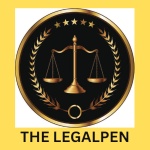“Navigating the Process of Video Clearance in Media Production”
Service Description
Introduction
Video Clearance refers to the legal process of obtaining permission to use copyrighted video content, such as clips from films, TV shows, or other visual media. It is a critical step in media production, particularly in projects involving compilations, documentaries, or any format incorporating existing video materials.
Requirement
The necessity for Video Clearance arises when a production involves using existing video content owned by others. This could include scenes from movies, snippets from television shows, or any copyrighted footage. Obtaining clearance is crucial to avoid copyright infringement, which can lead to legal issues and financial penalties.
How to Draft
To draft a request for Video Clearance, start by identifying the specific video content you wish to use. Include details such as the title of the work, the creator, the specific portion or scene you intend to use, and how it will be used in your project. The request should clearly state your production’s nature and the context in which the video will be featured. It’s important to communicate professionally and clearly, outlining your purpose and acknowledging the copyright holder’s rights.
Filing
The request for Video Clearance typically involves reaching out to the copyright holder or their representative, often through formal communication channels like emails or letters. Once permission is granted, a clearance agreement or license is usually provided. This document should be filed and kept as part of the production’s legal records. It’s crucial to have this documentation readily available, especially if questions about your use of the copyrighted material arise.
Conclusion
Securing Video Clearance is an essential aspect of responsible media production. It ensures that video content is used legally and ethically, respecting the rights of the original creators while allowing new creators to build upon existing works. Understanding the process of obtaining and filing these clearances is fundamental for anyone in the field of media production, to ensure their projects are legally sound and free from infringement disputes.



